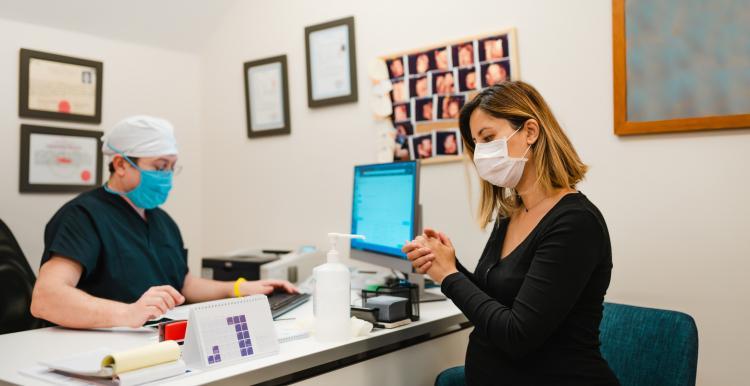COVID-19 vaccine: what you need to know

Last updated on 20 July 2021.
To check the latest Government guidance please visit Gov.uk.
We all have an important part to play to help the NHS deliver their vaccine delivery plan:
- When you are contacted, please book and attend your appointment(s);
- Turn up to your appointment on time, do not arrive early or late as the vaccination centres cannot accommodate you.
It is essential that everyone continues to follow COVID-19 restrictions whether they have had the vaccine or not. These include testing when you have symptoms and isolating when you are contacted by NHS Test and Trace.
For the latest information about the vaccine go to the NHS website.
Frequently Asked Questions: COVID-19 vaccine
Here are some FAQs to help you get the information you need to know about the biggest vaccination programme in history.
When will I get the COVID-19 vaccine?
All adults in England have now been offered at least one dose of a Covid 19 vaccine.
All those aged 18 or over can now book their vaccination through the NHS booking service. You can also call 119 free of charge, anytime between 7am and 11pm seven days a week.
The Government are currently reviewing evidence on the risk of COVID-19 in children and young people who are considered clinically extremely vulnerable. In the meantime, the official advice is that the following groups should be offered vaccines:
- Young people aged 16 to 17 years who are at higher risk of serious COVID-19 as currently set out in the Green Book: Immunisation against infectious disease
- Children aged 12 to 15 years with:
- Severe neuro-disabilities
- Down’s syndrome
- Underlying conditions resulting in immunosuppression
- Profound and multiple learning disabilities (PMLD)
- Severe learning disabilities or who are on the learning disability register.
Additionally, Children and young people aged 12 years and over who are household contacts of vulnerable persons will also be offered a COVID-19 vaccination.
How do I book my vaccine?
You will be able to book your vaccination through the NHS booking service. You can also call 119 free of charge, anytime between 7am and 11pm seven days a week.
How might I be contacted to get my vaccination?
- Local hospital services - you might be contacted either to have the vaccine as an inpatient or at an outpatient appointment.
- Local GP services - practices in your area are working together to contact and offer the vaccine to as many people as possible. This may be at a different surgery than you usually go to, or at a venue that has been set up specially to deliver vaccines.
- Through your care home - GPs and their teams are also arranging to vaccinate care home residents directly, in their homes.
Where do I go to get my vaccine when I’m contacted?
Hundreds of local vaccination services run by GPs and their teams have opened across the UK, as well as dedicated vaccination centres.
You will be given information by the NHS about where you need to go for your vaccination appointment(s) when contacted. If the option given is not suitable, you can request for a more local centre for your appointment.
Find out how many people have had the COVID-19 vaccine
The NHS publishes a weekly report on vaccination numbers. To find out the latest numbers click the button below.
How long between my first and second dose of the vaccine?
You will receive your second dose up to 8-12 weeks after the first, regardless of the vaccine type. The second dose completes the course and is important for longer term protection.
How do I book my second dose of the vaccine?
You'll need to book a 2nd dose for 8 to 12 weeks after your 1st dose.
- If you book online, you'll be asked to book appointments for both doses. You can manage your COVID-19 vaccination appointments to view your appointments and rebook if you need to.
- If you have your 1st dose at a walk-in vaccination site, you can book your 2nd COVID-19 vaccination appointment online. You'll need to wait 24 hours after your 1st dose before you can book.
- If you have your 1st dose through your GP surgery, you'll be contacted when it's time to book your 2nd dose.
Some people at high risk from COVID-19 can get earlier appointments for their 2nd dose (at 8 weeks instead of 12 weeks). Wait to be contacted if you think you're in this group and you've already booked your 2nd dose at 12 weeks.
Are there any side effects?
Like all medicines, vaccines can cause side effects. Most of these are mild and short-term, and not everyone gets them.
You should not have the vaccine if you've ever had a serious allergic reaction to:
- any of the ingredients in the vaccine
- a previous dose of the same COVID-19 vaccine
Serious allergic reactions are rare. If you do have a reaction to the vaccine, it usually happens in minutes. Staff giving the vaccine are trained to deal with allergic reactions and treat them immediately.
Did you have side effects from the vaccine?
To help the MHRA collect and monitor information in relation to the COVID-19 vaccine, you can report your symptoms.
I'm pregnant, can I still get the vaccine?
The Joint Committee on Vaccination and Immunisation (JCVI) has advised that pregnant women should be offered the COVID-19 vaccine at the same time as the rest of the population, based on their age and clinical risk group.
There have been no specific safety concerns identified with any brand of COVID-19 vaccines in relation to pregnancy.
It is preferable for pregnant women in the UK to be offered the Pfizer-BioNTech or Moderna vaccines where available. There is no evidence to suggest that other vaccines are unsafe for pregnant women, but more research is needed.
Women who are planning pregnancy, are in the immediate postpartum or are breastfeeding can be vaccinated with any vaccine, depending on their age and clinical risk group. To find out more visit Healthwatch England's maternity support advice and information page.
Protect yourself from fraud
In England, the COVID-19 vaccines will only be available via the NHS. You can be contacted by the NHS, your employer, a GP surgery or pharmacy local to you, to receive your vaccine.
Remember, the vaccine is free of charge. At no point will you be asked to pay.
- The NHS will never ask you for your bank account or card details.
- The NHS will never ask you for your PIN or banking password.
- The NHS will never arrive unannounced at your home to administer the vaccine.
- The NHS will never ask you to prove your identity by sending copies of personal documents such as your passport, driving licence, bills or pay slips.
Do I have to have the COVID-19 vaccine even though I've already had COVID-19?
An effective vaccine is the best way to protect people from COVID-19, reduce hospitalisations and save lives. Vaccines are the only way to eradicate disease.
People that have already had COVID-19 should still get vaccinated. It is still just as important for those who have already had COVID-19 as it is for those who haven’t.
Is the COVID-19 vaccine compulsory?
There are no plans to make the COVID-19 vaccine compulsory for the general population. Following consultation earlier this year, from October 2021 people who work in care homes – both staff and volunteers – will need to be fully vaccinated. There are some exemptions and the requirement to be fully vaccinated will not extend to people who are visiting friends and families.
Do I need to self-isolate if I'm fully vaccinated?
In England from 16 August, if you’re fully vaccinated or under 18, you will not need to self-isolate following close contact with someone who has COVID-19. You’ll still need to take a PCR test and self-isolate if it’s positive.
How do I prove my vaccine status?
An NHS COVID Pass shows your coronavirus (COVID-19) vaccination details or test results. This is your COVID-19 status. You may be asked to show your pass to get into some events, where the COVID Pass is being trialed, or to travel abroad.
A digital COVID pass is available through the NHS App or the NHS website. A paper version is also available online.
What does a vaccine do?
Vaccines teach your immune system how to create antibodies that protect you from diseases. It's much safer for your immune system to learn this through vaccination than by catching the diseases and treating them. Once a vaccine has trained your immune system to know how to fight a disease, it can often protect you for many years.
Are vaccines safe?
Vaccines are now safer than ever before. Any vaccine must first go through the usual rigorous testing and development process and be shown to strict standards of safety, quality and effectiveness before it can be deployed.
How do I feedback or complain about the NHS COVID-19 vaccine service?
If you are unhappy with the service you have received, it is important to let the NHS know. To provide feedback, raise a concern or make a complaint, please email england.contactus@nhs.net.
Got a question?
If you have more questions about the COVID-19 vaccination programme you can find more information on the NHS website or contact us.

